[ad_1]
Sometimes I think I’ve seen it all when it comes to travel…and then I go to a destination that blows my mind and makes me realize that I have a lot yet to see! My Galapagos Islands holiday was full of learning opportunities, but most of all it was full of awe and joy. How could it not be – the Islands and wildlife are stunning. It’s like being inside an episode of Planet Earth.
I can’t believe I waited so long to visit the Galapagos Islands! After years of people telling me I should go there, I finally pulled the trigger on the Galapagos in November of 2021 – a time when the world was slowly starting to move around again. It was a perfect time for me to visit these special islands for the first time.
During my 5 days there, I learned so much. My arrogant long-time-traveler side thought I knew what to expect…after all…I had seen it all before. But every day I learned something new that surprised and delighted me.
Galapagos Islands Cruises and Resorts
There are many, many Galapagos cruises (and even resorts!) to choose from. In addition to the type of tour, length of the tour, and type of boat – you’ll also have to choose which islands and wildlife you want to see. And finally, you’ll need to decide what time of year you want to come as it is a year-round destination!
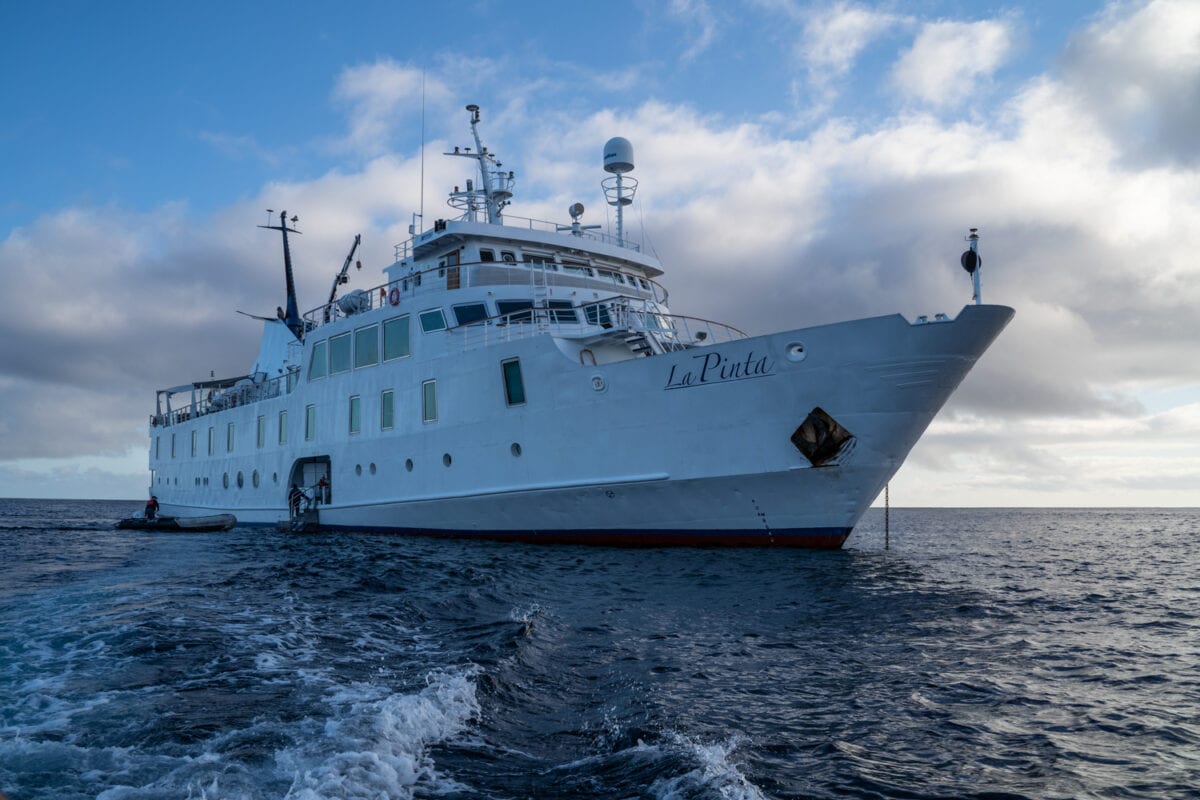
For reference, I went with Metropolitan Touring on their Eastern Islands Cruise, an Ecuadorian-owned company that has been critical to Galapagos tourism and conservation for decades.
Metropolitan Touring even has a resort, Finch Bay Galapagos, on Santa Cruz Island. This is great for people who might not want to spend a week on a ship but still want to explore the islands or maybe just stick to land-based experiences around Santa Cruz Island.
Metropolitan Touring was exactly what I was looking for – the fit was perfect for me. However – you should make your choice based on your travel style and budget. And here are a few things I learned that will help you with that choice.
13 Things You Should Know Before You Go to the Galapagos
I often found myself thinking – ‘I wish I had known this before I got here’.
That’s why I decided to put together this list of things about the Galapagos that I sort of wish I knew beforehand. Some of these things are quirky, some are essential to know, and some will help you decide what type of tour you will want to book for a Galapagos Islands holiday.
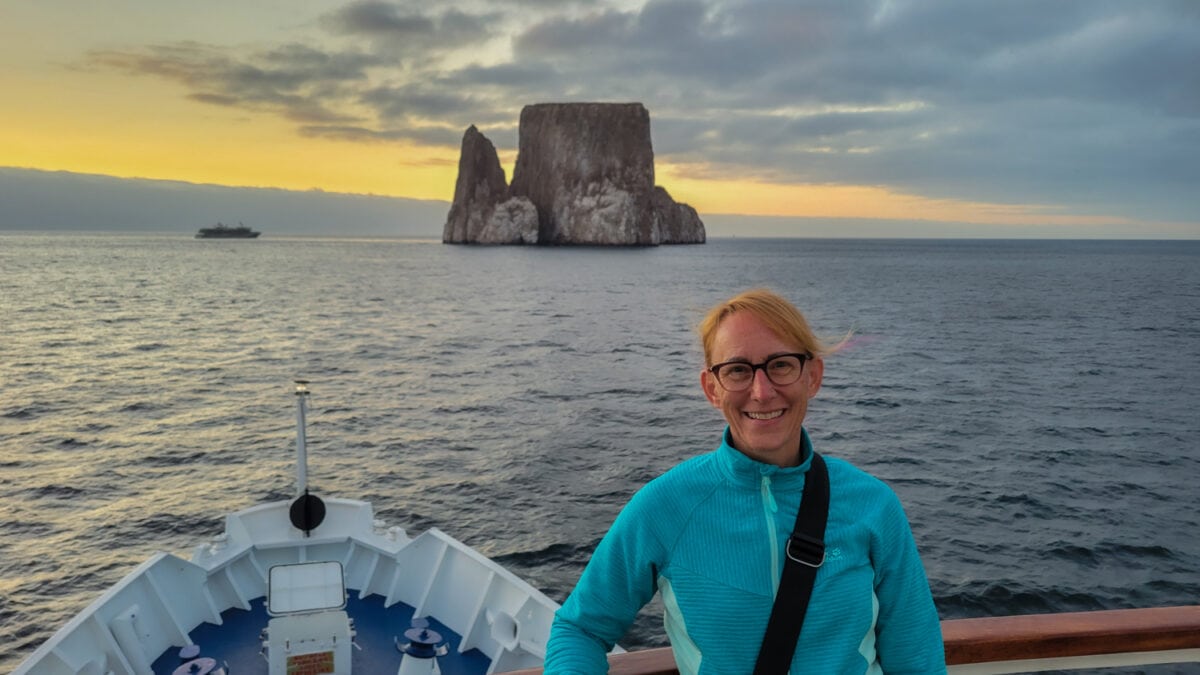
1. It’s in Ecuador – the Galapagos Islands is not its own country
Actually – I did know this before my trip – however, I was surprised to find out that most people don’t know that the Galapagos Islands are a part of Ecuador. They are located 605 miles off the coast of Ecuador and are part of the country just like Hawaii is a part of the United States.
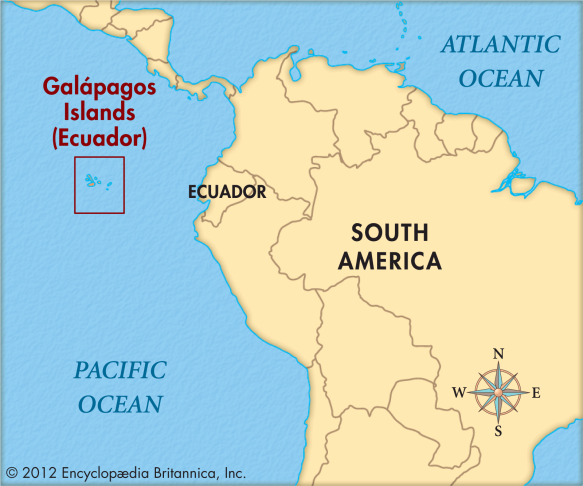
To visit you’ll need to follow the Ecuador visa rules, as well as pay a park entrance fee.
The Galapagos National Park Entrance fee is levied on all visitors to the islands. The Galapagos entry fee is currently 100 USD per person (reduced to 50 USD for children under 12 years old). This fee must be paid, in cash, at the airport on arrival. Funds from the entry tax for tourists are used to finance the conservation of biodiversity of flora and fauna, terrestrial and marine, and benefit the local community by improving basic services, education projects, sports, health, environmental sanitation, environmental services, and services directly related to tourists.
2. The Difference Between a Tortoise and a Turtle
All tortoises are turtles, but all turtles are not tortoises. You’ll see both in the Galapagos Islands – and yes, there is a difference! Honestly – before I went, I didn’t know what the difference was.
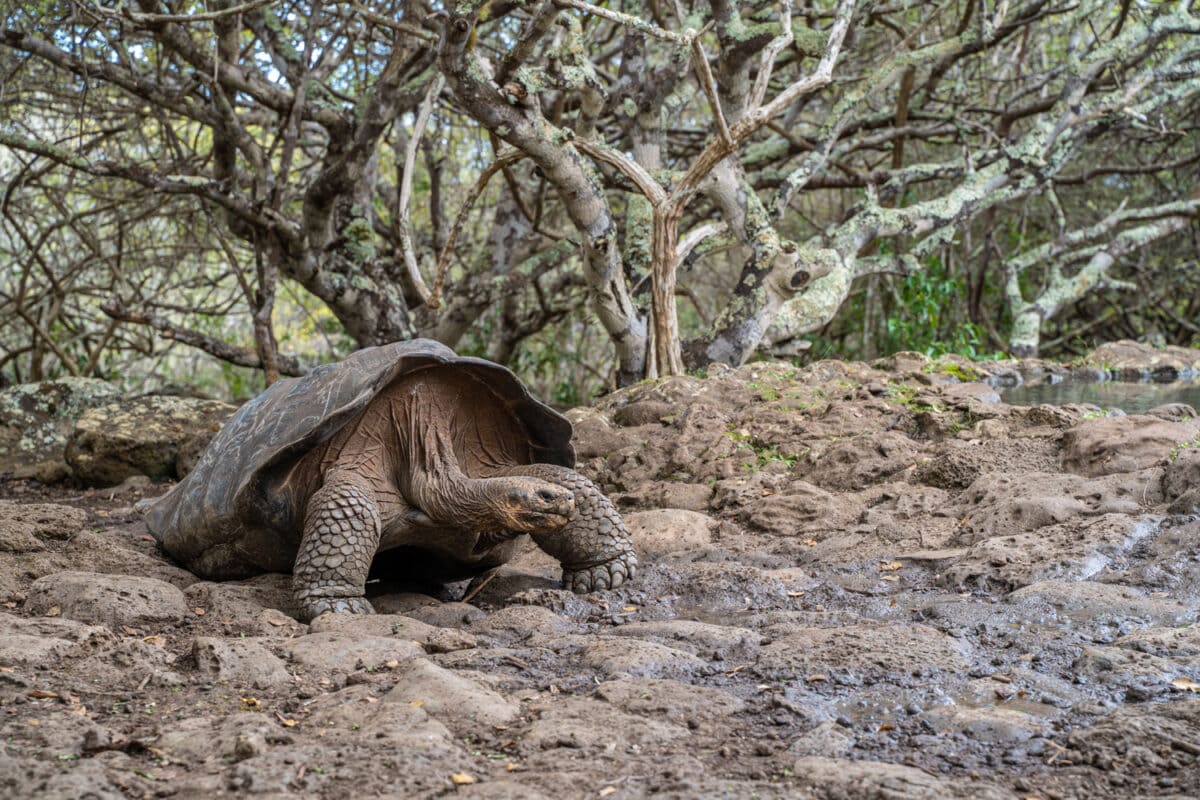
A tortoise is a land animal; they generally stay away from water except to drink it. Their shell is a bit more rounded/domed and they nest and live on land. In the Galapagos, you’ll see the endemic Galapagos Giant Tortoise. These creatures are incredible to see. They lumber around slowly and live for hundreds of years. You can view them at various sanctuaries they have on the islands and learn more about their long lives, and the conservation effort on the islands to keep this rare, old, species alive. A visit to one of these sanctuaries is a must! You can find sanctuaries on Santa Cruz Island, San Cristobal, and Isabella Islands.
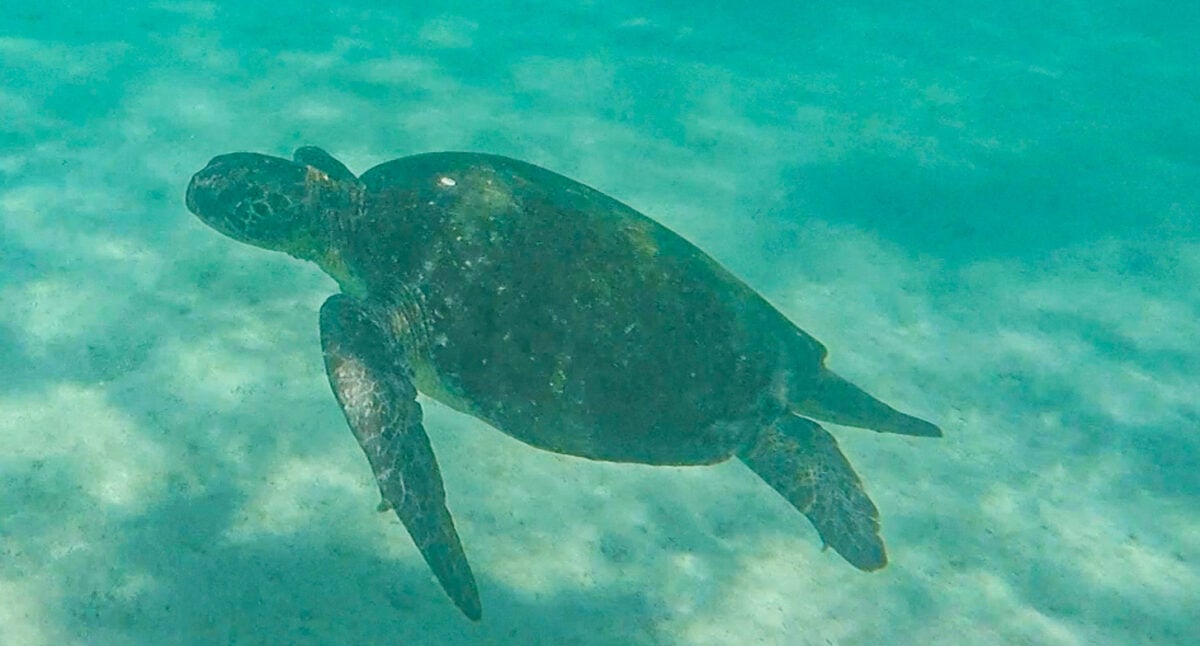
A turtle generally lives in the sea and has a more streamlined thin shell to be more aerodynamic in the water. Sea turtles will really only come on land to lay eggs. And yes – you’ll also see plenty of sea turtles if you take to the water in the Galapagos. I was able to snorkel along with the sleek sea turtles and it was a highlight of my Galapagos vacation!
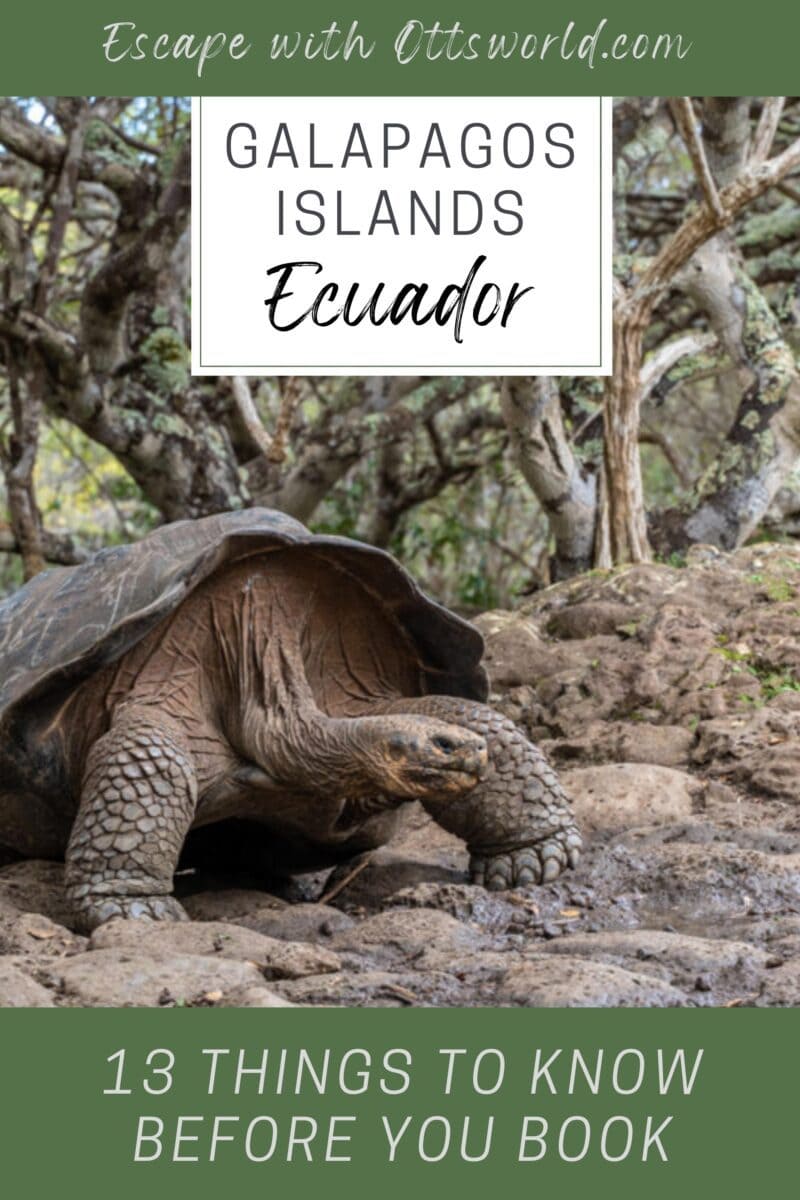
3. Charles Darwin Only Spent a Few Weeks in the Galapagos
Charles Darwin is probably the first thing that comes to mind when you hear about the Galapagos Islands. Thanks to his famous book, The Origin of Species, he sort of put the Galapagos on the map. However, you may be surprised to learn he was actually only there for 5 weeks and visited just 4 of the 13 islands! In addition, of the 5 weeks there, he was only onshore for 2 of the weeks.
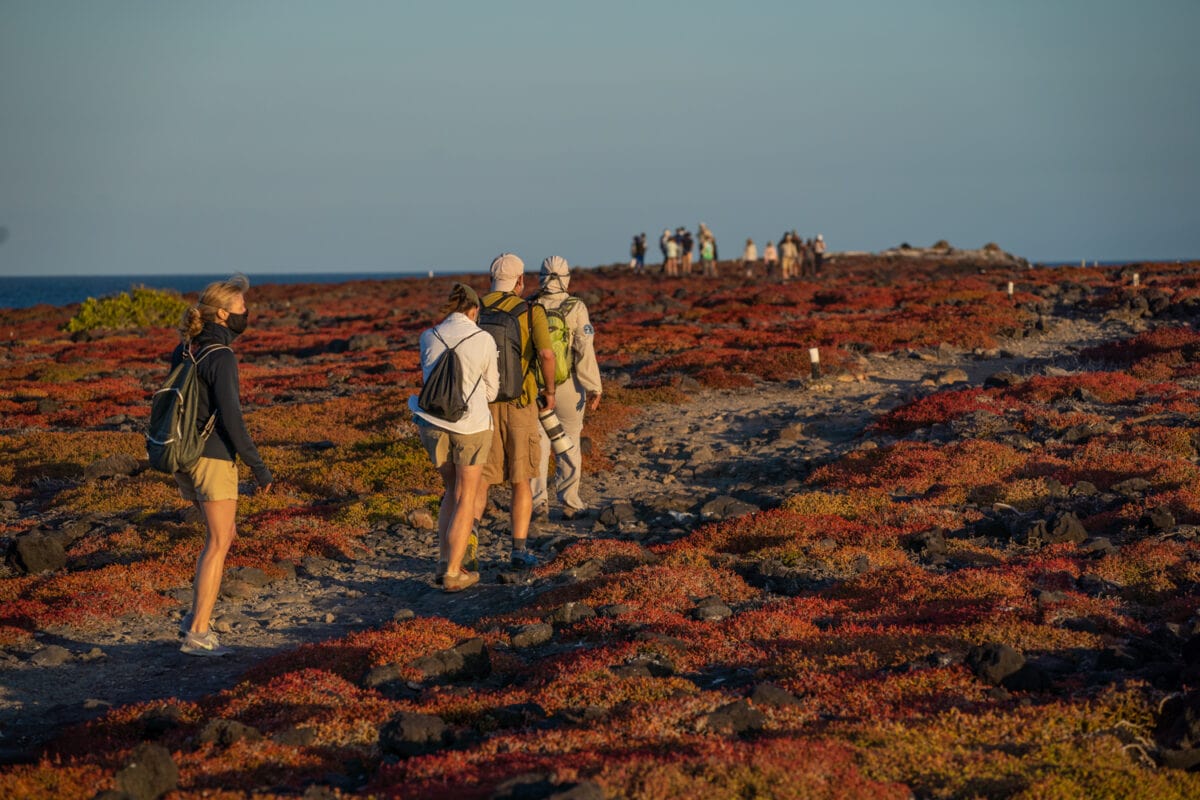
It’s crazy to think that he could have such a profound trip with only two weeks on land! The wildlife he encountered inspired him to develop his Theory of Evolution; which solidified him in history. Just think how much you can accomplish if you go on a week-long Galapagos Islands holiday!
4. There’s a Dance Party on Espanola Island
You’ve heard of full moon parties in Thailand…well the Galapagos has a special dance party of its own on Espanola Island. I was enthralled as I learned about the Waved Albatross mating dance. And I was even more delighted when I got to see it!
The dance is one of the most extraordinary courtship rituals among seabirds – you will be mesmerized.
They mate for life – a commitment that always begins with this hilarious courtship display – a dance of love. The dance includes a precise sequence of moves: rapidly circling and bowing, clacking beaks, mouth gaping (my favorite), stopping/starting at exactly the same time, and finally raising their beaks skyward whilst letting out a “whoo-ooo” call as a ‘climax’. Once mated, a pair will lay just one egg per year, which they will guard vigilantly for two months.
Can’t imagine it? Then watch it for yourself!
That’s why this is one dance party you don’t want to miss in person!
Best Time to See Waved Albatross Performing the Mating Dance
It is thought that some 20,000 pairs breed and nest on Espanola Island each year.
Courtship dances of newly-paired albatross and well-established pairs can be seen only between April and December. The closer to the end of that period you’ll see the courtship of pairs who did not breed that year, but are still practicing, normally peaking in October.
5. The Islands Were Originally Colonized for ‘Big Business’
The islands have an extensive human history that is often overlooked. They may have been one of the last places on Earth to be colonized by humans, but sailors, whalers, and adventurers have been stopping there for at least the past five centuries. In the 1860s the islands were colonized with the hope of big business and the manufacturing of a popular purple dye. The islands are filled with a lichen, orchil, which produces a purple dye that had ‘economic potential’.
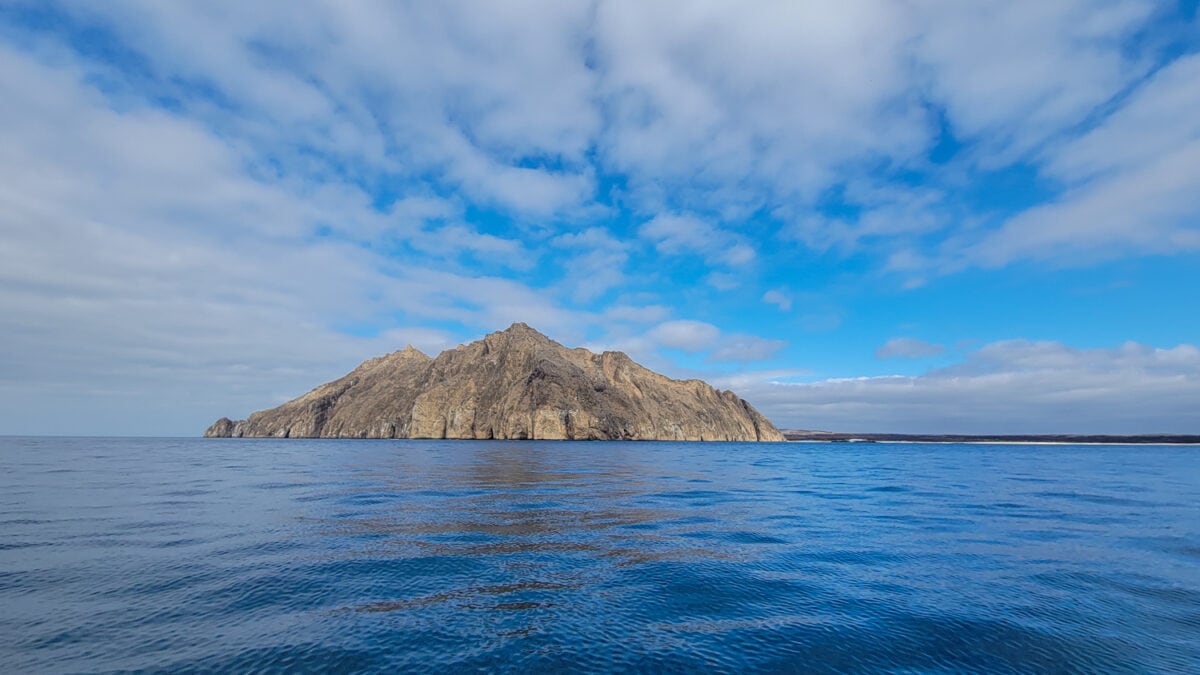
It’s interesting that a business reason, is the one that moved Ecuador to colonize the Galapagos because prior to this venture, Galapagos Islands had no ownership, they were no man’s land. It was only because of the orchil business potential that Ecuador decided to put the flag on these remote islands on February 12 of 1832. However, by 1879, the global market for plant-based orchil dye had crashed, and the business venture crashed along with it. Tourism on the island didn’t really start until 1934.
6. A Galapagos Island Vacation is not Tropical
Despite its equatorial location, the Galapagos climate is not as tropical as you might imagine. The islands are made up of lowland and highland zones. The lowland areas are quite desolate and more like a dry, arid desert. There are few trees; mainly cactus-like my favorite Prickly Pear Cacti found on many of the island’s lowlands.
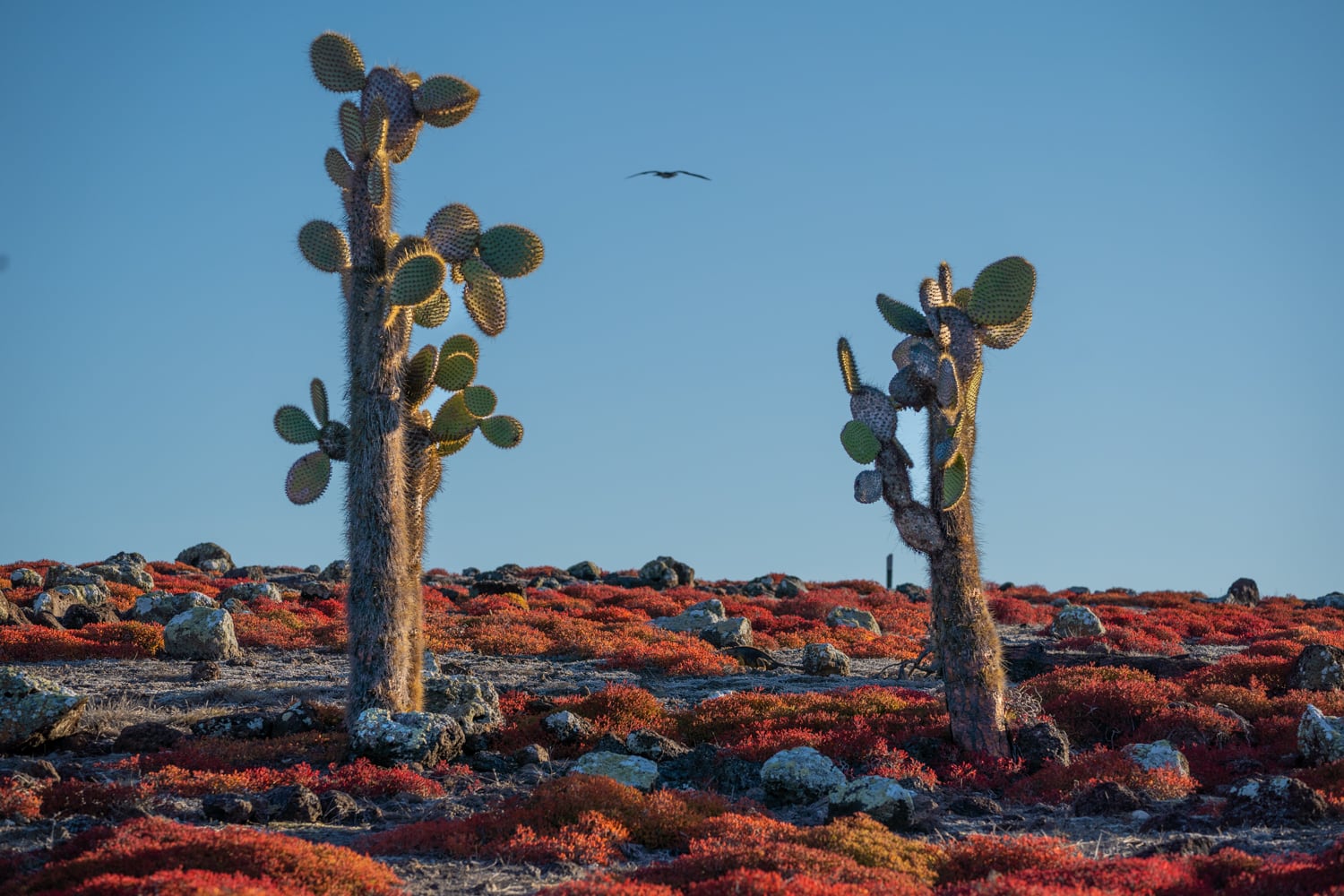
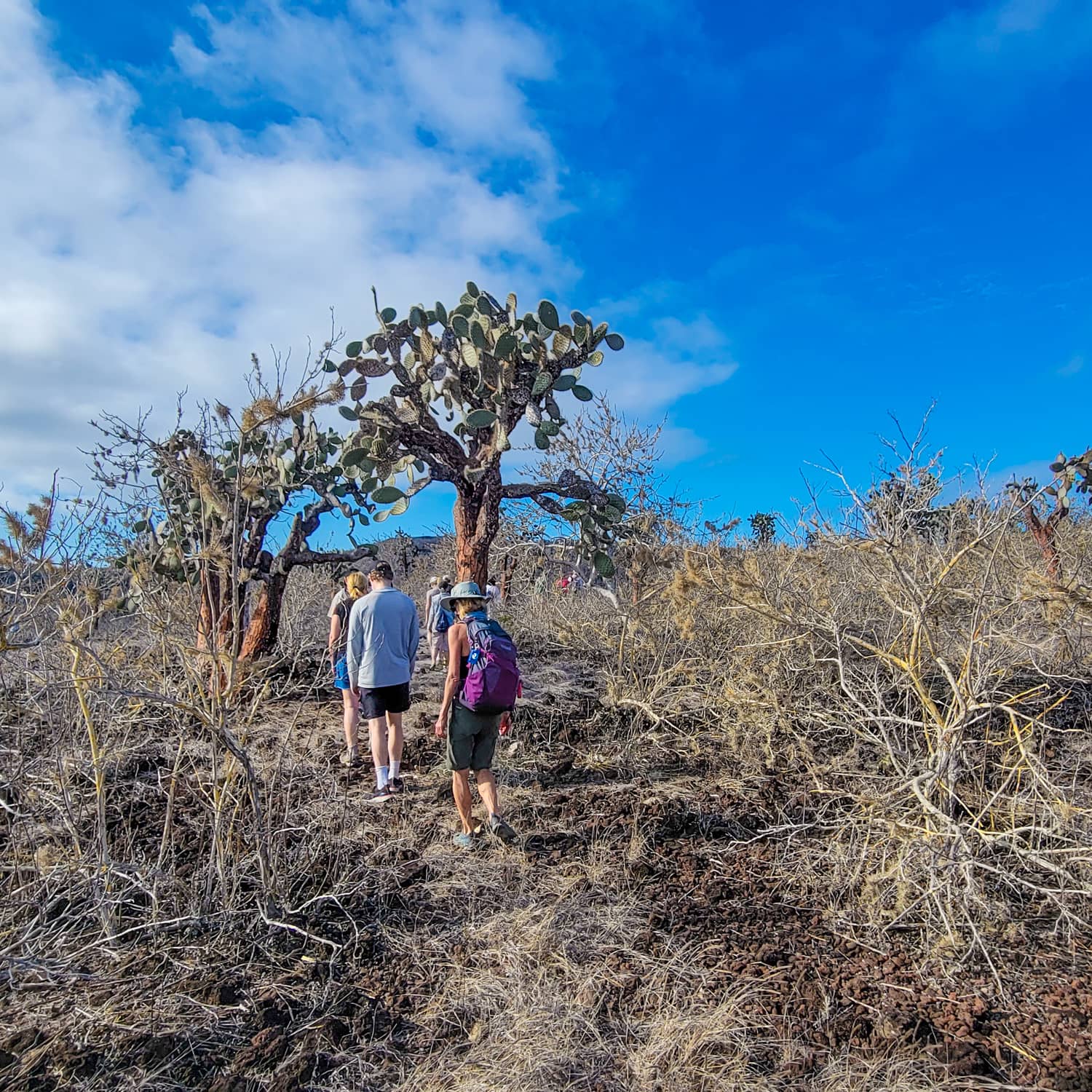
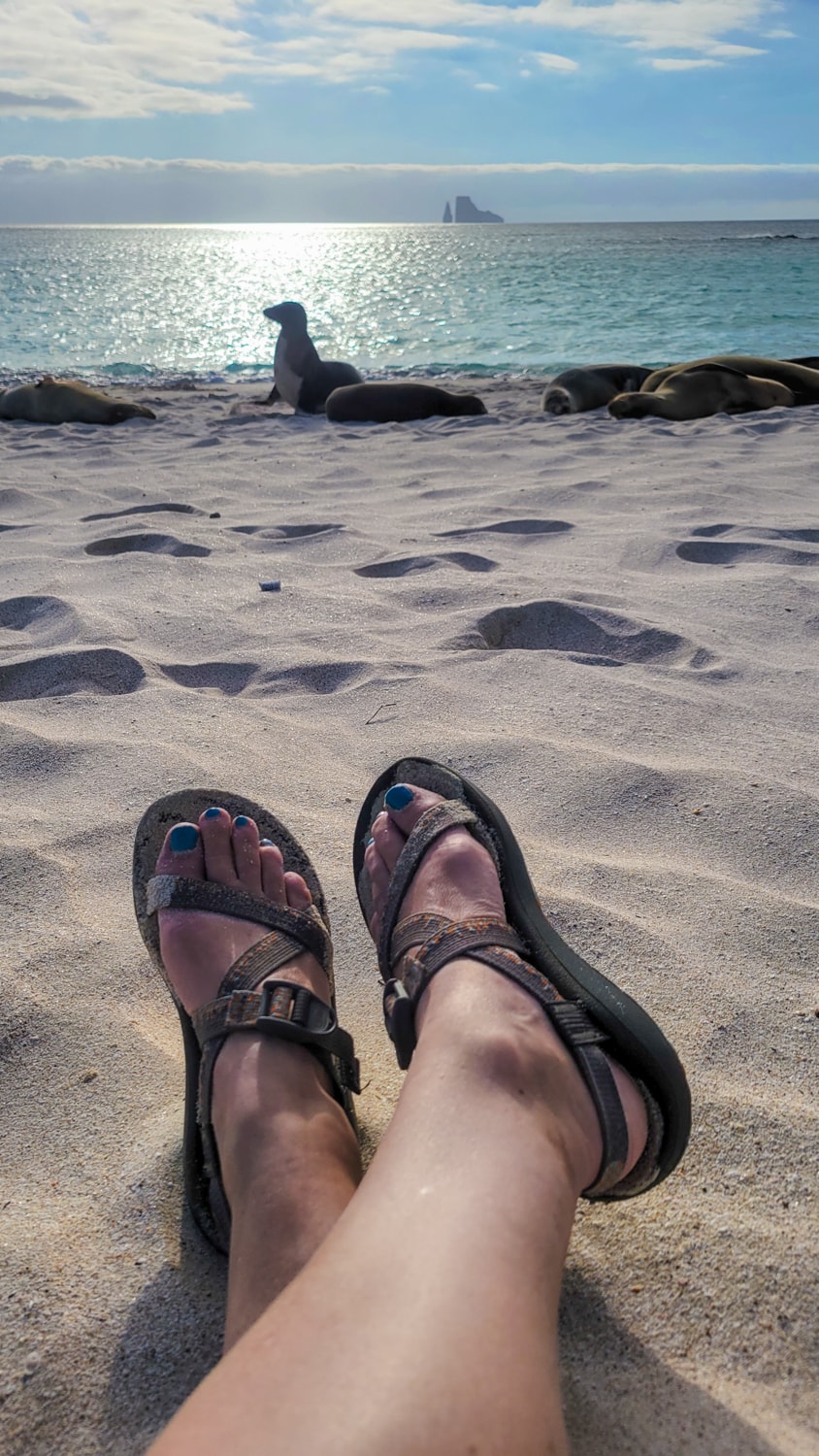
The highlands are more humid and greener. You’ll find trees/forests there and different animals also live there. Here’s a map of the different islands and their highlands/lowlands areas.
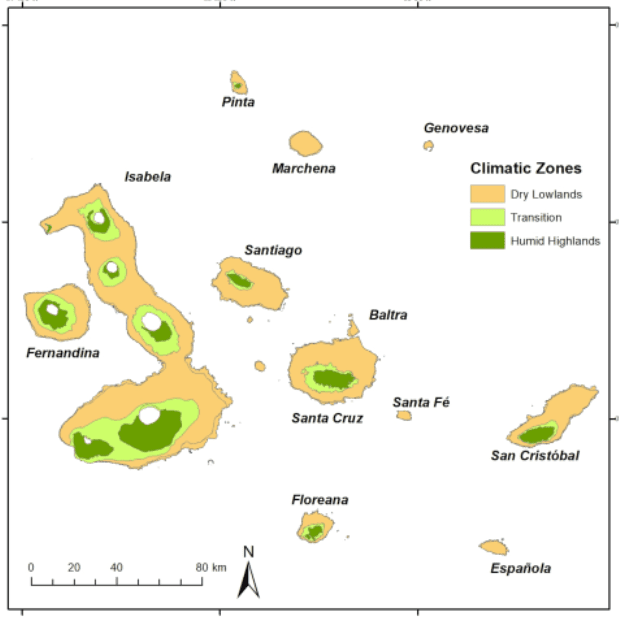
However, what you won’t find are palm trees, cabanas, umbrella drinks, and tropical beaches. Yes – there are beaches – and they are beautiful – but they are also occupied by sea lions, iguanas, birds, and cacti.
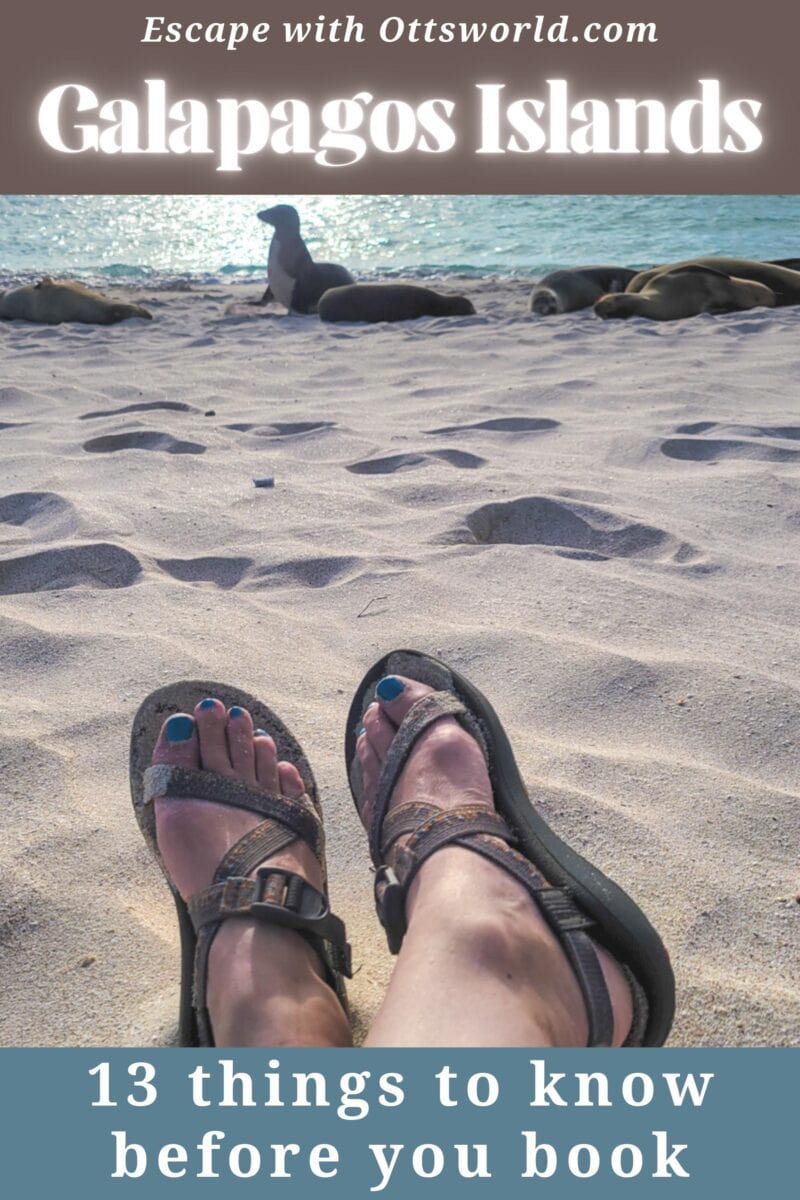
7. Galapagos Rainy Season Only Consists of Short Showers and is the Best Time to Visit
I know many people who are concerned about traveling during rainy seasons – but honestly, the hot season (or times when it rains) is a great time to visit the Galapagos. In fact, it may be the best time to visit!
I love visiting locations in hot, rainy seasons because the average traveler doesn’t know that the islands actually only get short showers that last only 20 to 30 minutes. People think that the rainy season is a constant downpour, raining all day, ruining their vacation. Well – here’s the secret – it’s not like that at all in the Galapagos! You see, there are two distinct seasons in the Galapagos Islands – a dry season and a hot season.
Galapagos Hot Season
Runs from December to May with average temperatures of 88 to 70 F
and water temperatures are 74 to 76 F
Ocean conditions are clear and warm; excellent for snorkeling and diving. Brief tropical showers that last 30 or 40 minutes interrupt bright sunny days keeping vegetation green and wildlife active. What’s really interesting is that if you look at the whole year, and see the number of hours of actual sun throughout the year, it is in the hot season that you get the most sun although it’s the time of the year when it rains.
Galapagos Dry Season
Runs from June to November with average temperatures of 78 to 62 F
and water temperatures are 74 to 66 F
Expect a bit more wind and water choppiness, but this is an excellent time for hiking and viewing active marine life. There is also plenty of snorkeling to be done – but you’ll probably be dawning a wetsuit to keep you a bit warmer. I went in November, the dry season, and I definitely used a wetsuit for snorkeling!
8. Galapagos Animals Aren’t Afraid of Humans
You have probably read this before – but it’s hard to really grasp until you are there, and a sea lion wobbles right past you, or a Blue Footed Boobie has a nest right on the trail and just looks at you as you walk inches away from it and doesn’t even flinch. The rule is to stay 6 feet away from the wildlife, but the wildlife doesn’t have a rule- they come as close to you as they like.
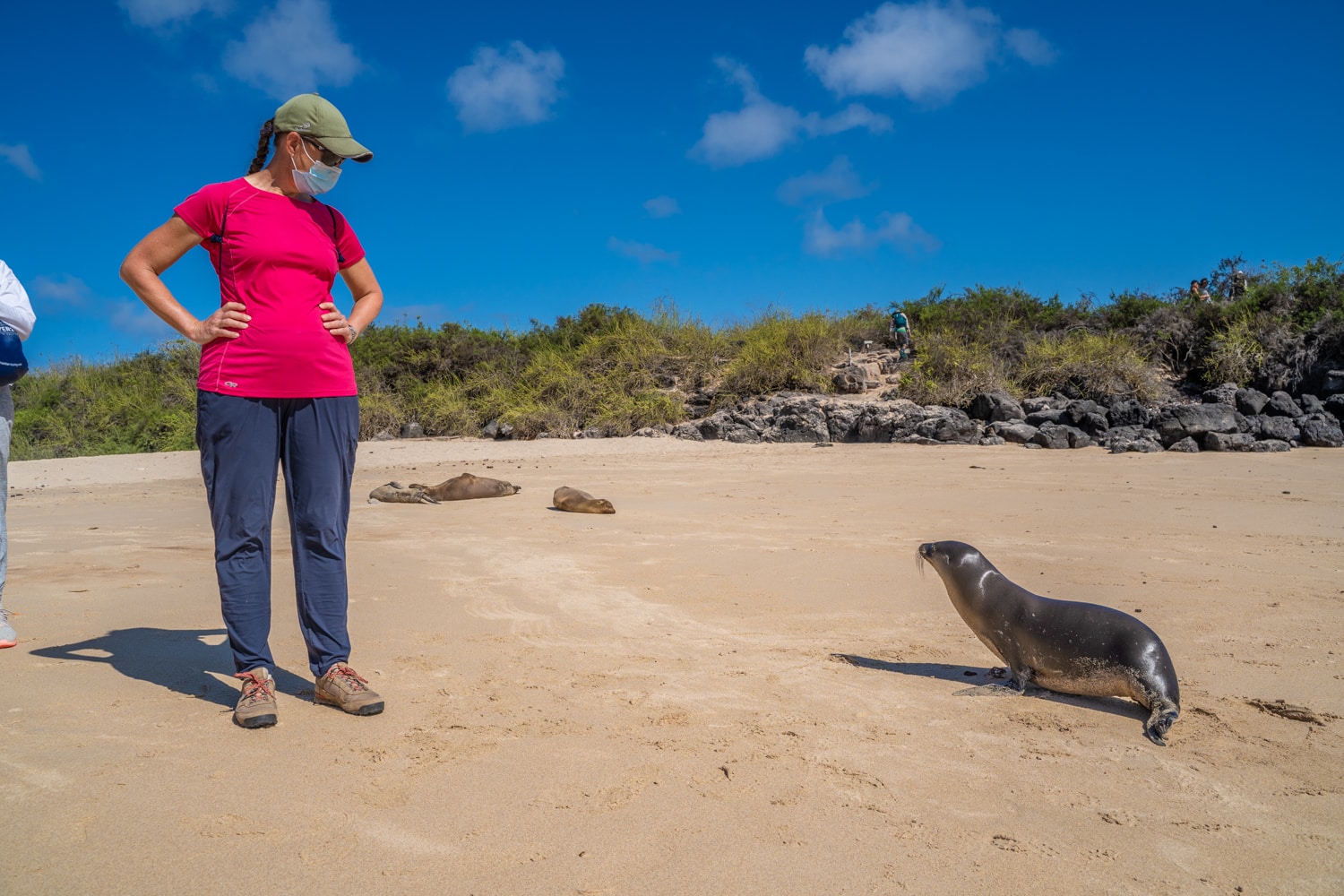
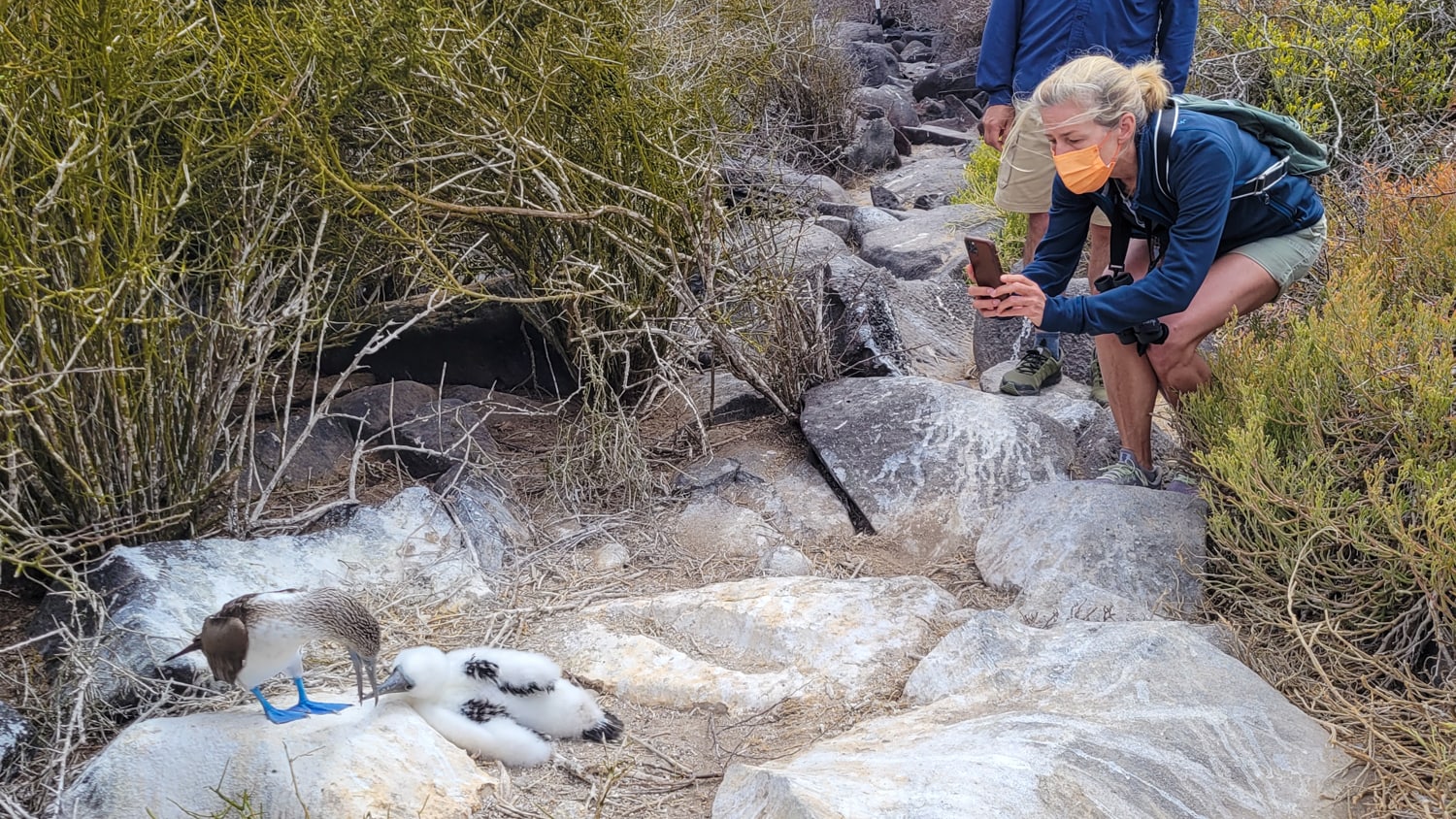
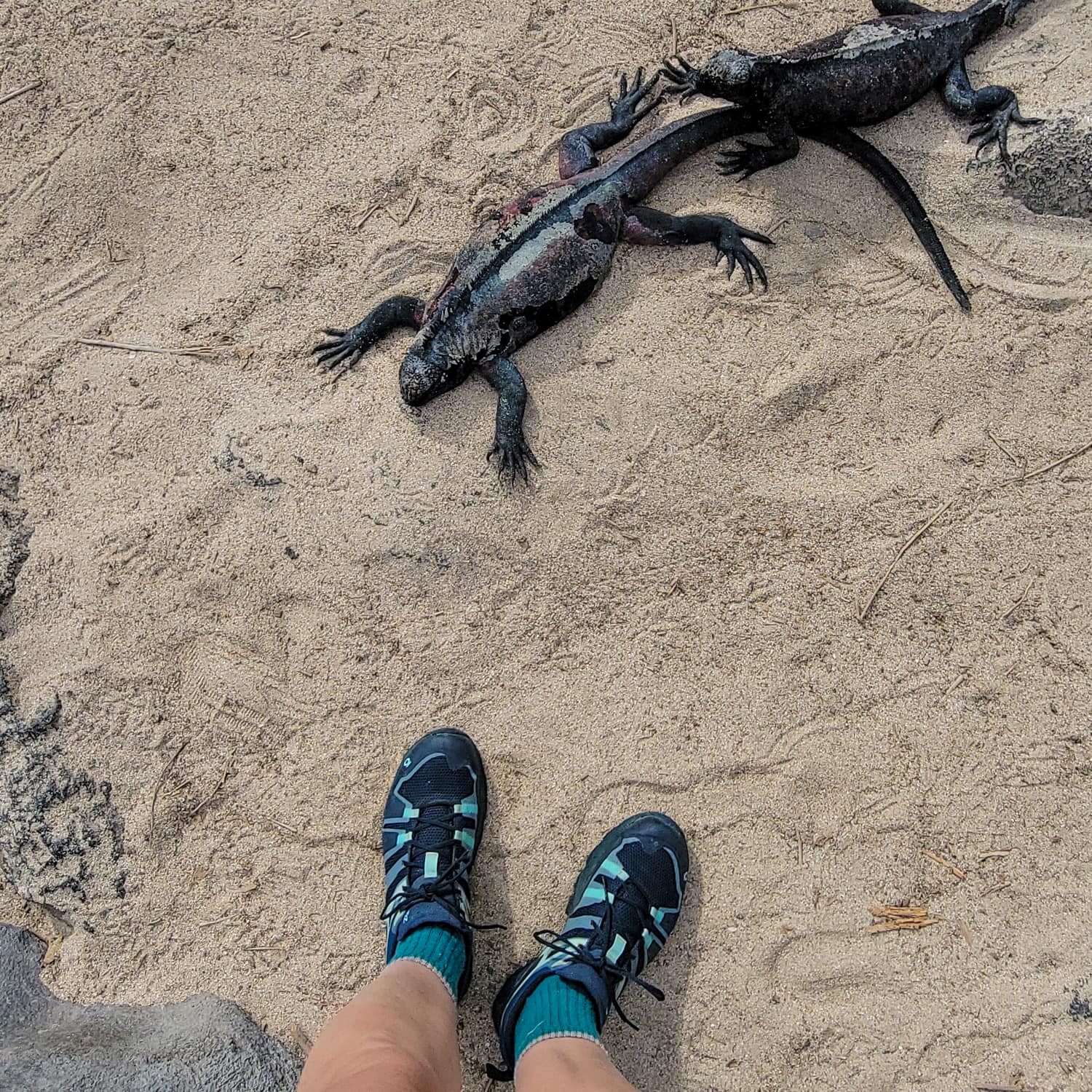
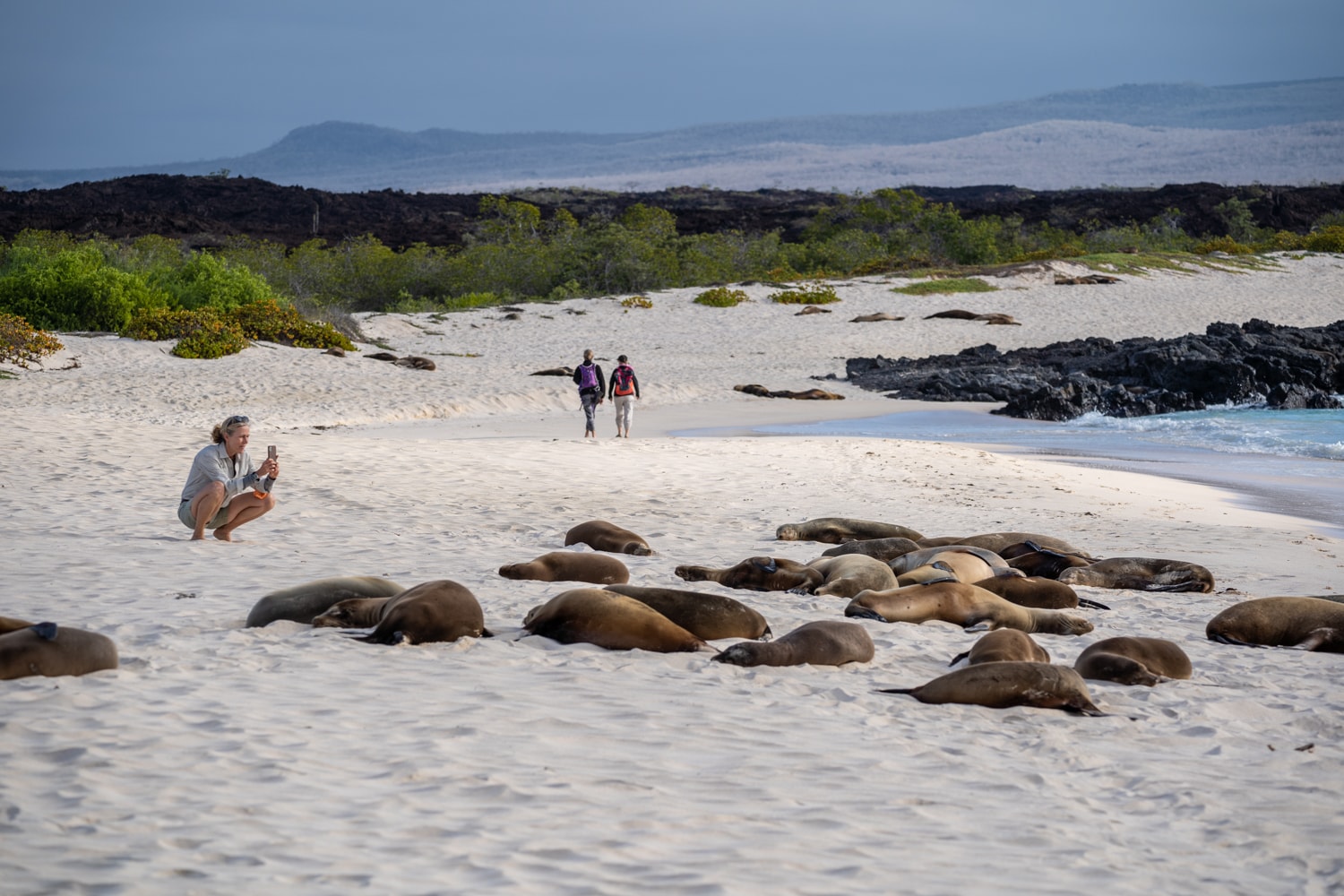
Our guides explained that the animal’s lack of fear of humans on the Galapagos Islands has to do with the fact that they have no predators. And they have no predators because they are on an archipelago 600 miles away from the nearest landmass; that’s when isolation comes in. Large carnivores would have never been able to reach the islands because they’re so far away. Large mammals can’t float there or swim there. Archipelagos behave very differently than continental islands where there’s a continuous migration movement of animals in the area.
In addition, the species on the island have learned over time that humans are not a threat to them. This is in part thanks to all of the conservation efforts put in place by Ecuador and the tourism industry. Hundreds of years ago before it was a protected area, sailors did come and take/kill animals on these islands. But through years of protection, now the generations of animals only know humans as no threat, so they will not be phased by you walking within a few feet of their nest!
This is the same kind of thing that happens in Antarctica and the Subantarctic Islands. Penguins will surround you with no fear and I personally think that’s one of the things that makes places like this so magical. You’ll never experience getting so close to wild animals except on really remote islands. Maybe that’s why I love remote places and extreme travel so much!
9. Galapagos Sea Lions Think Everything is Theirs
Don’t be surprised if when you are in port towns like Puerto Baquerizo Moreno you’ll find the Sea Lions just hanging around town. And they aren’t just contained to the beaches or port. You’ll find them at bus stops, on top of picnic tables (seriously – how did they get on top of a table?!!), they will be everywhere. I figure they sort of do own the place…they were here on the islands first after all. Just beware – they may look domesticated as they lay on a bench at the bus stop, but they are still wild. Do not approach them or feed them or even think that they are ‘pets’.
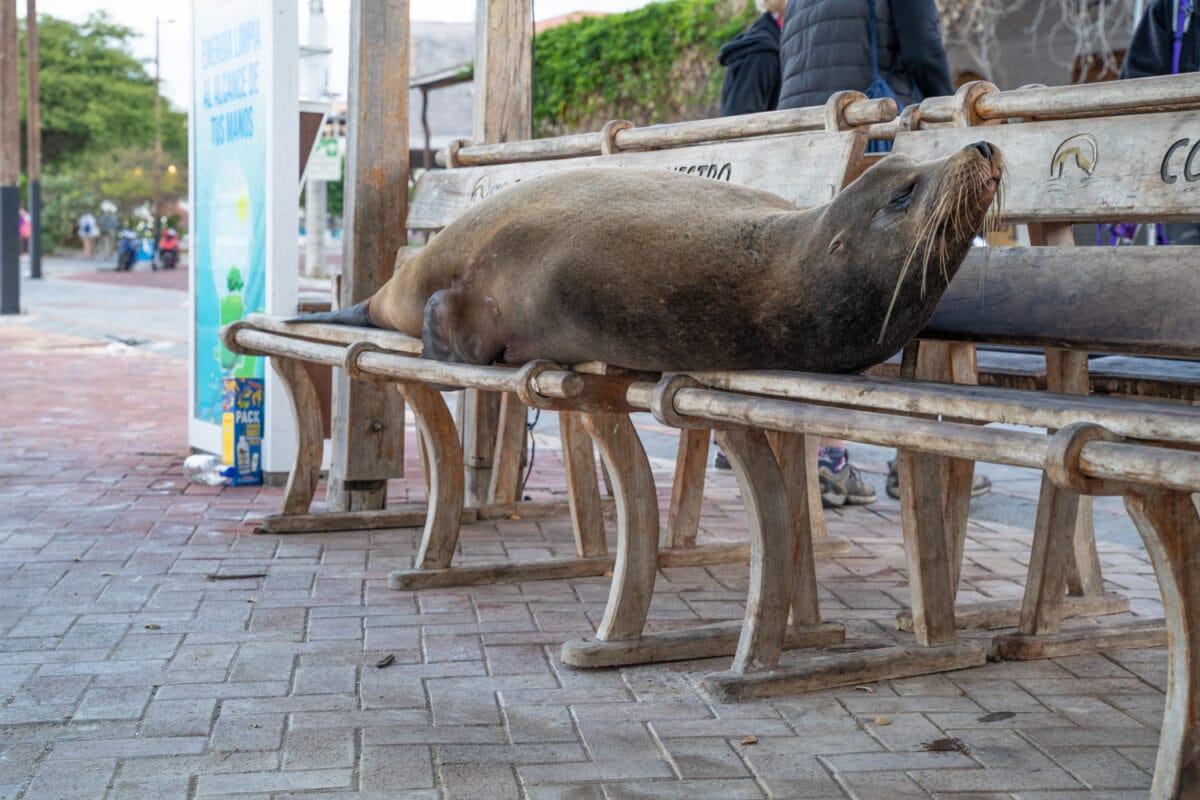
10. When in Doubt Put ‘Galapagos’ in Front of It
The islands have endemic species that had evolved and adapted to the remote islands leaving behind their original characteristics. It’s hard to actually get an exact number of endemic animals, but it’s over 30 for sure. Since these Endemic species are restricted to a geographical area and do not occur naturally in any other part of the world, they got the classification name ‘Galapagos’ when they were recorded. That’s why nearly every animal you point to and ask your guide, “What’s that?” will be answered with the word Galapagos ‘fill in the blank’.
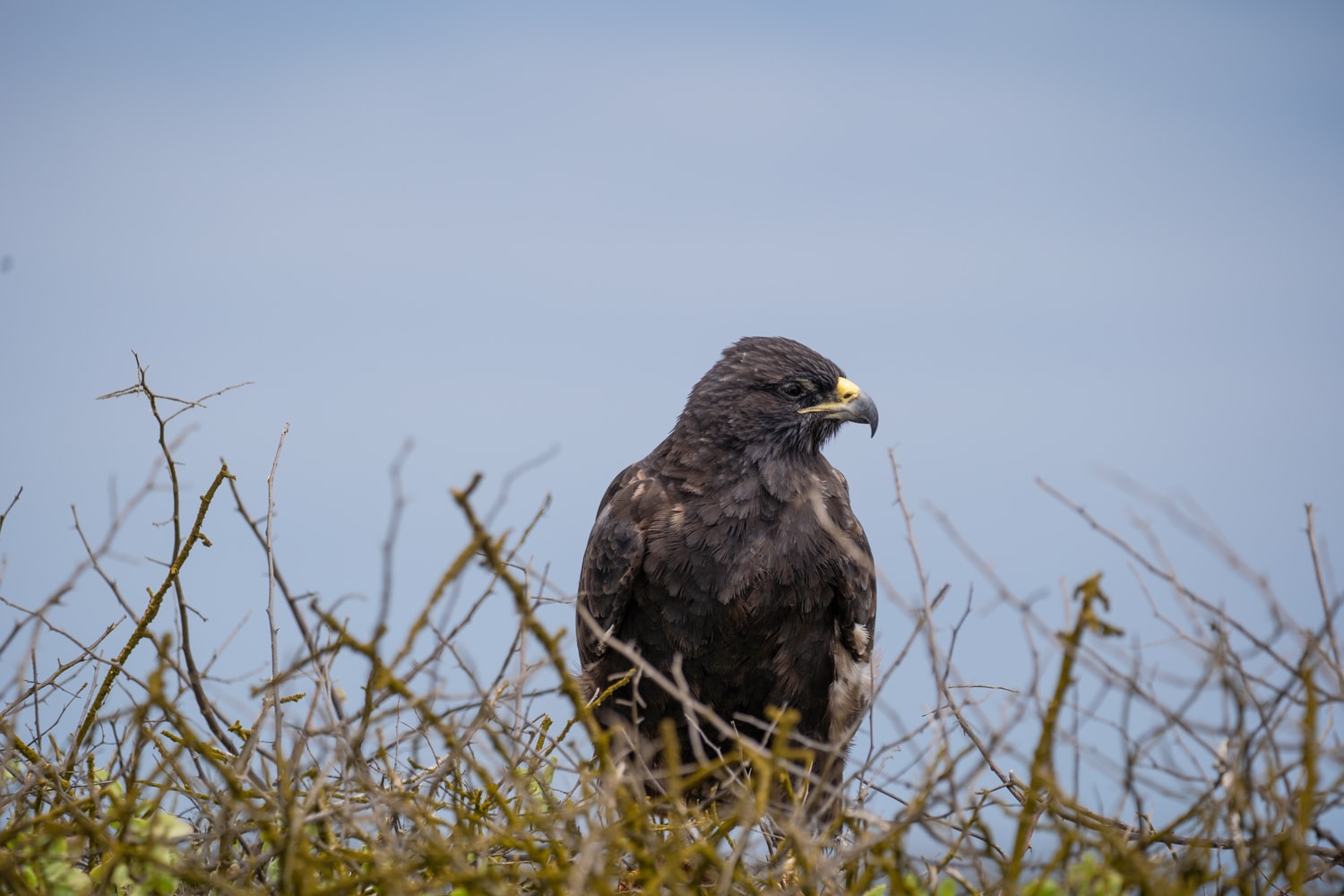
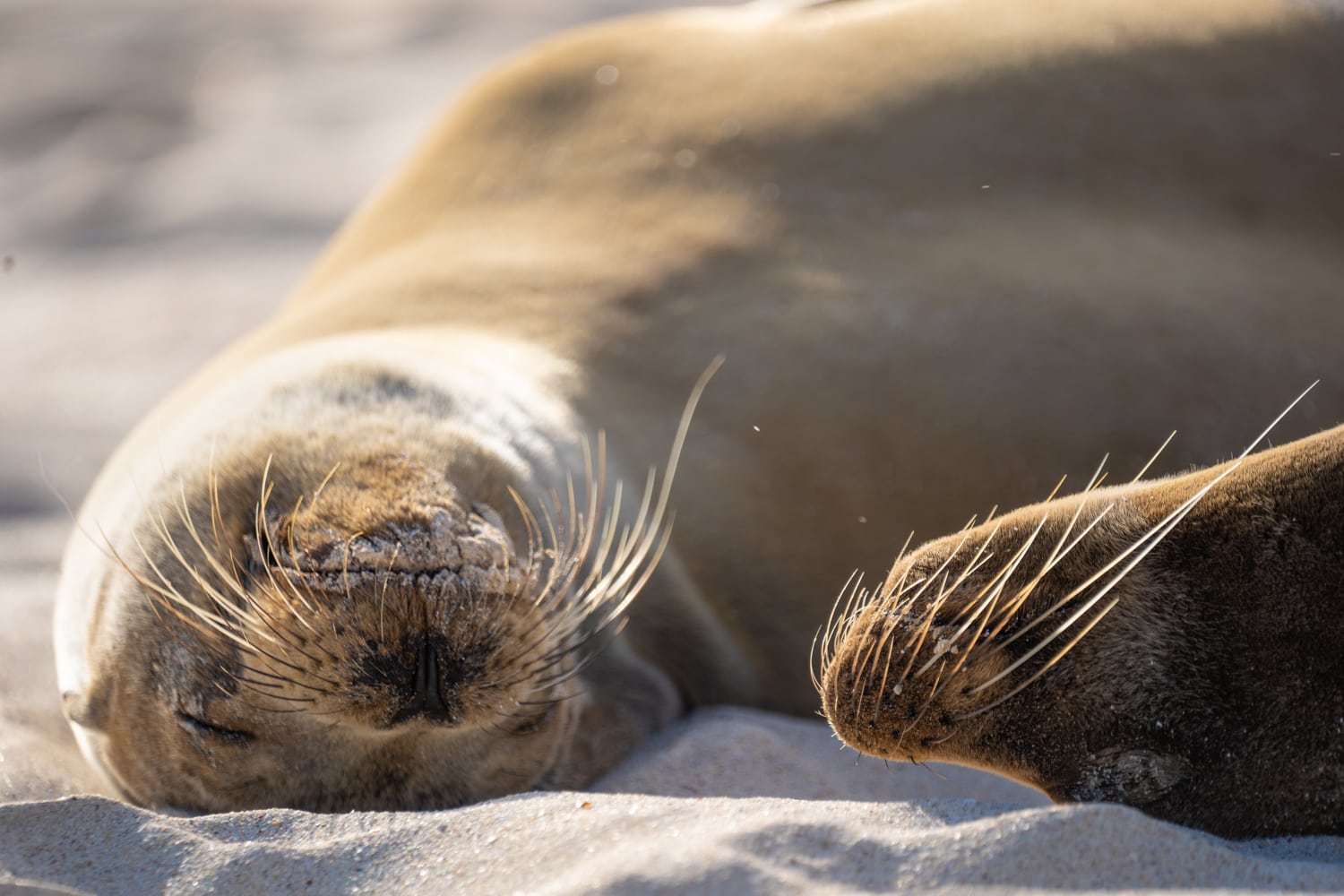
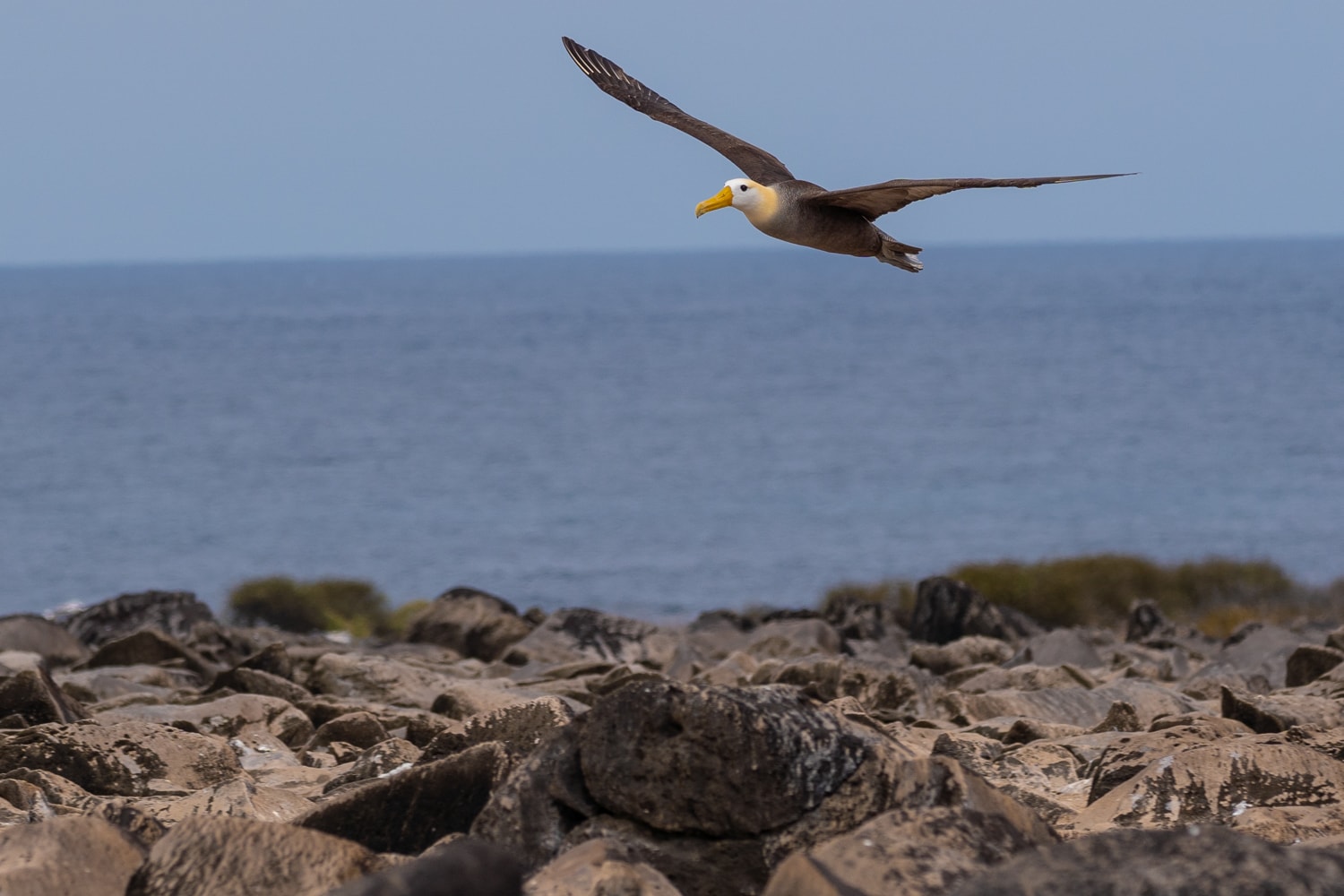
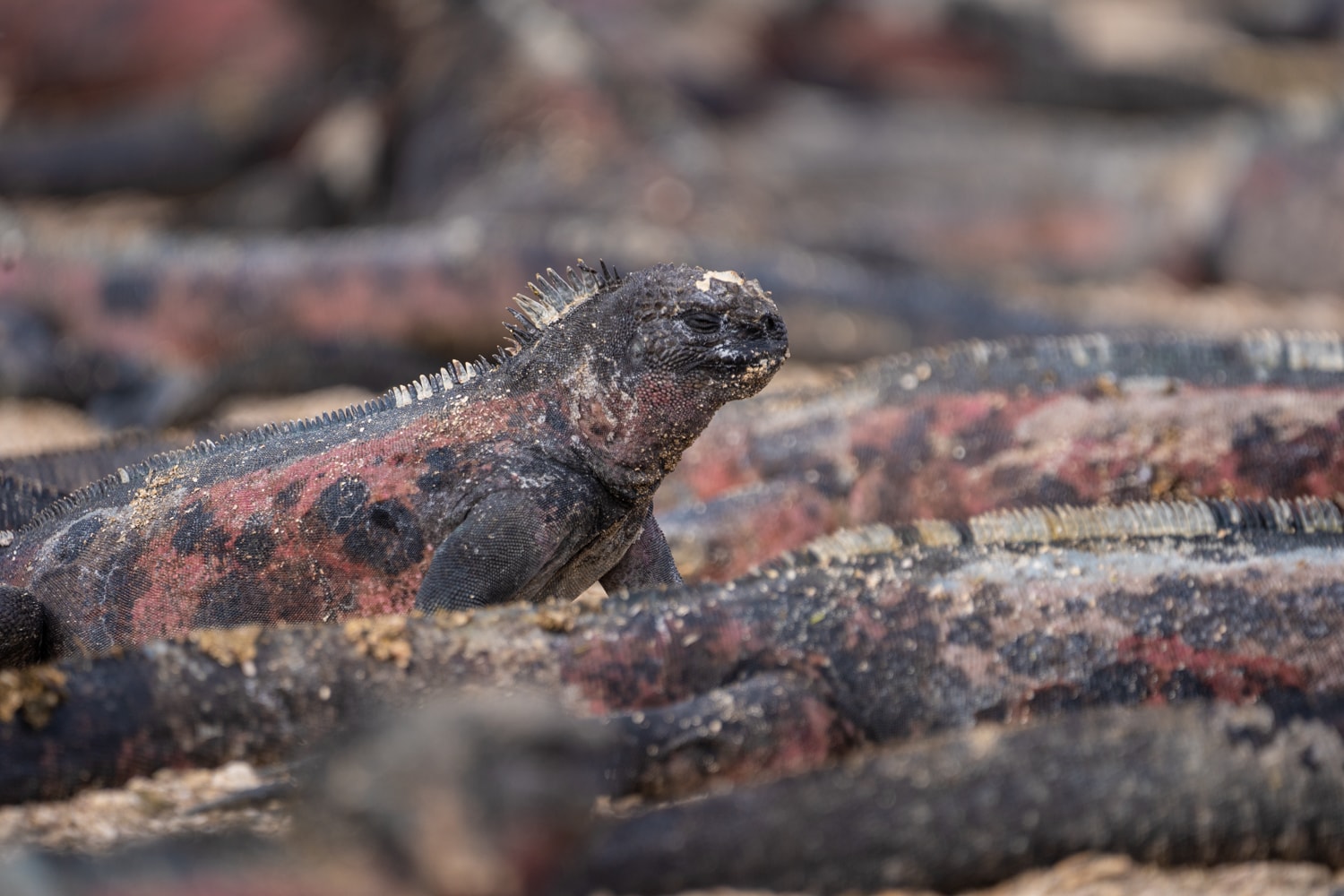
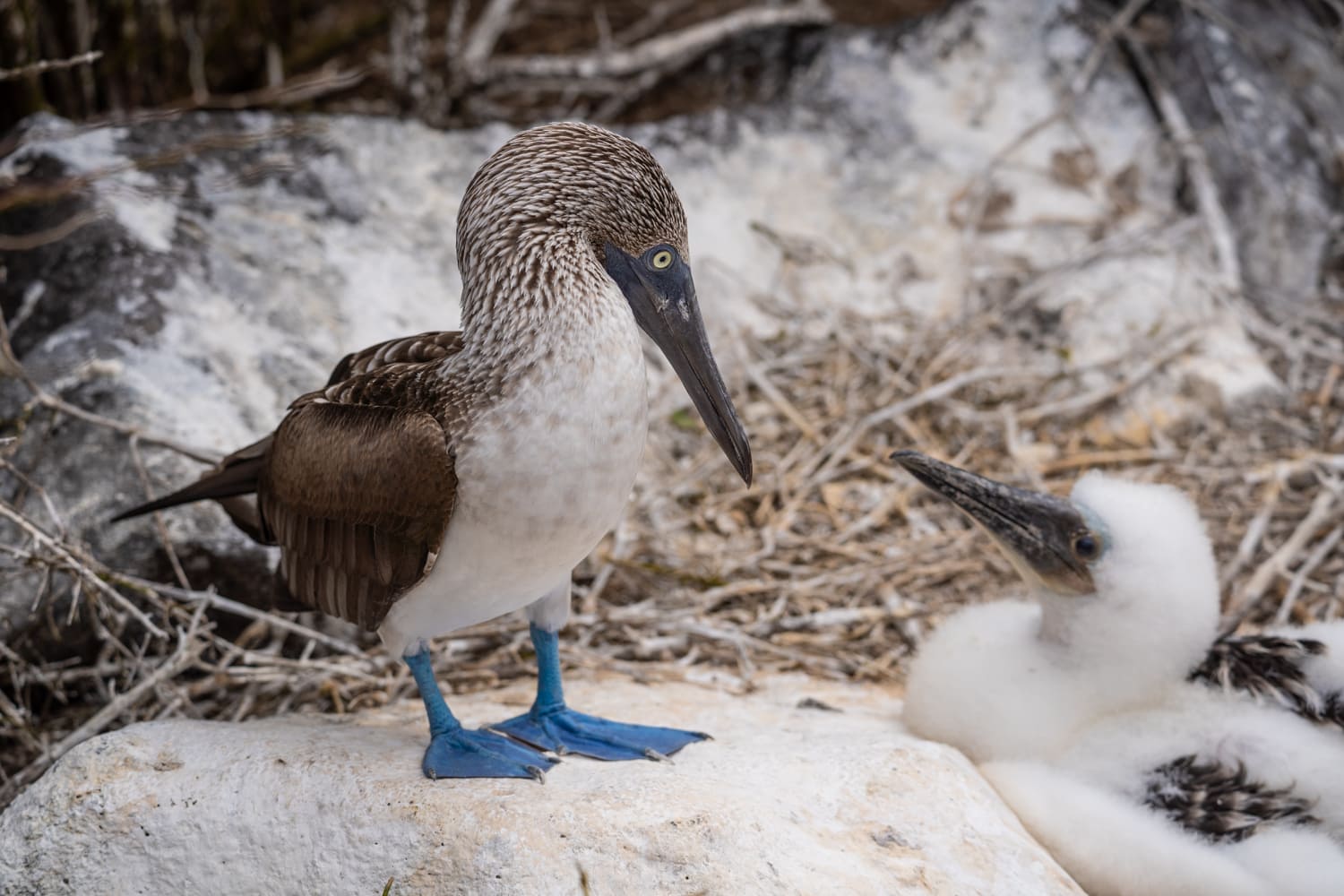
I found it a bit humorous after a while; Galapagos sea lion, Galapagos Giant Tortoise, Galapagos Albatross, Galapagos Hawk, Galapagos Penguin, Galapagos Pink Iguana, Galapagos Humming Bird, Galapagos Finch, Galapagos Fur Seal…the list can go on and on. Even though I found it entertaining – it’s also pretty cool when you think about it; making the islands even more special.
11. Ship Size Matters on your Galapagos Vacation
While at first thought a small, single-guided ship may seem the most appealing way to go for your Galapagos Islands holiday, don’t choose too fast. Larger, multiple-guided ships actually offer distinct advantages for travelers.
Most of the cruise ships in the Galapagos are sized for 16 guests, which generally explore the islands as a group. However, larger expedition ships have multiple guides and guests can look forward to visiting the islands in smaller-sized groups: just 11-12 guests per guide on average. With the potential for further divisions based on interest (birding, for instance), language (English, Spanish, German, to name a few), and activity level (easy-going to strenuous), group sizes often run even smaller. Plus – if you are prone to seasickness – or worried about it, the bigger the ship the less the jostling. Your stomach will thank you!
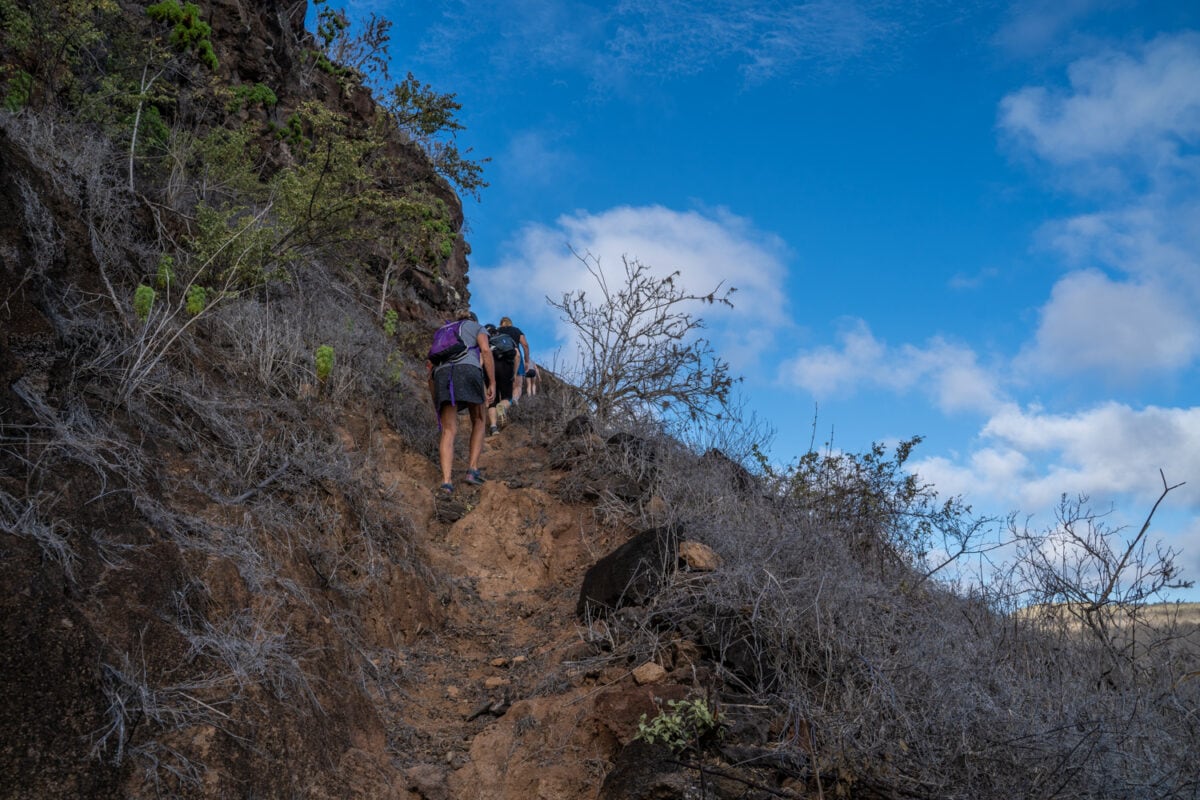
I am normally a proponent of ‘the smaller ship the better in expedition cruising’ – however in this instance, I was SO THANKFUL that we were able to break up into different groups with different interests. We had a group that loved strenuous hikes and because of that I was able to see much more of the islands – and I was just happier overall. The other easier hikes wouldn’t have satisfied me. In addition, I wasn’t always into hard-core birding so I preferred to focus on hiking and snorkeling. I preferred having more time in the water with the sea lions than checking birds off a list.
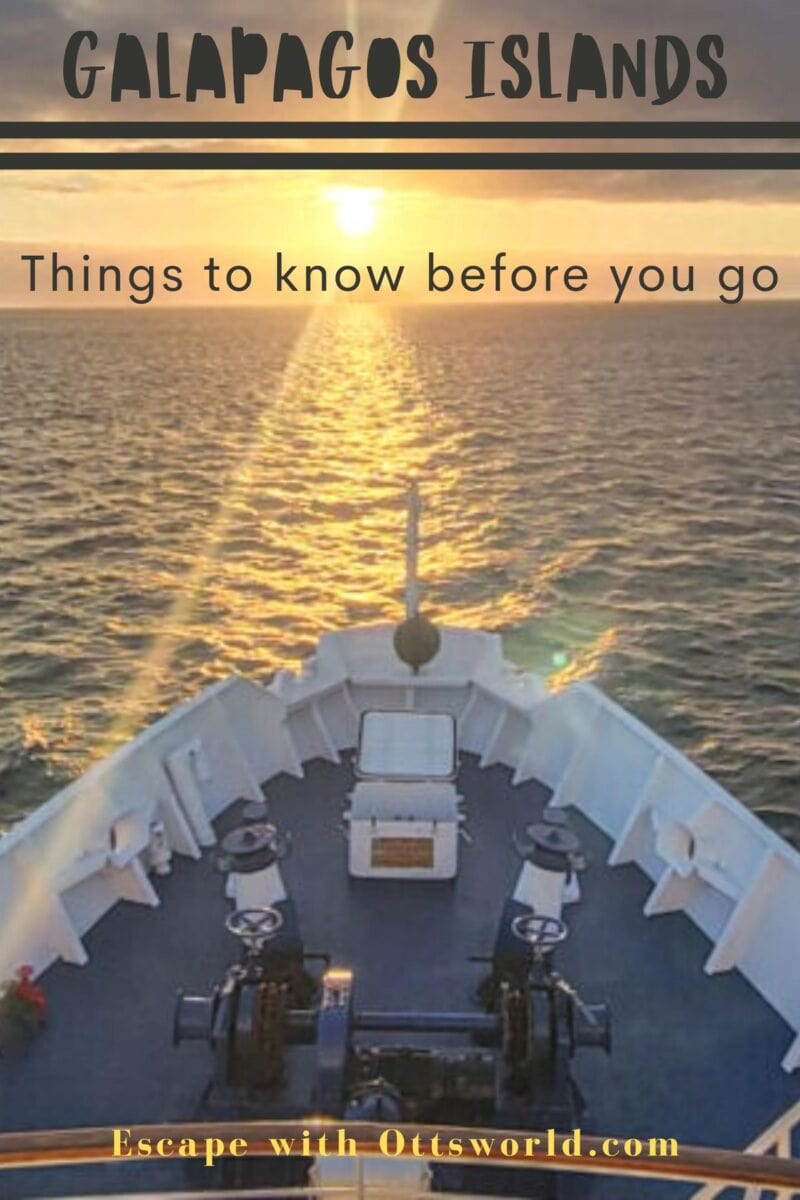
12. No Matter What, Go Snorkeling in the Galapagos
Galapagos Diving is supposed to be superb – however I’m not a diver, but I do like to snorkel. It was my big surprise and highlight of the whole Galapagos vacation. I normally prefer hiking to snorkeling – but the sheer joy of snorkeling and playing with sea lions, sea turtles, and the dazzling fish was a once-in-a-lifetime experience.
Reef sharks whizz by, not far from your flippers, Sea Lions twist and turn zooming past you in a crazy ‘game of chicken’, and Sea Turtles swim past languidly as the rays blend into the sand below. The Galapagos Islands are one of the world’s greatest snorkeling destinations, where these legends of the ocean can be spotted close to the surface.
I was literally screaming and giggling in joy as the sea lions swam around me. It seemed like the more twisting, turning, and bubbles I made, they were more interested thinking that I was just a friend playing with them.
So, if you are the type of person who is like…uh…I don’t know…the water looks cold…it’s cloudy…maybe I’ll just sit on the beach instead, I can see enough from here…
DON’T BE THIS PERSON! DON’T SKIP SNORKELING!! You will thank me.
13. Every Island is a Separate World of Its Own – Your Itinerary Matters
Because there are different species and plants on each island, it’s important to pick your route carefully if there are specific animals you want to see. I did the Eastern Islands and there are no Galapagos Penguins on those islands. However, my favorite dancing Waved Albatross only exists on Espanola Island, and my itinerary went there!
The Galapagos is unusual because the islands don’t behave equally within the archipelago. Each island of the archipelago group behaves differently. You may think it doesn’t matter which islands you choose to visit – but it does matter. The more islands you see, the more you understand why the Galapagos is so different and important.
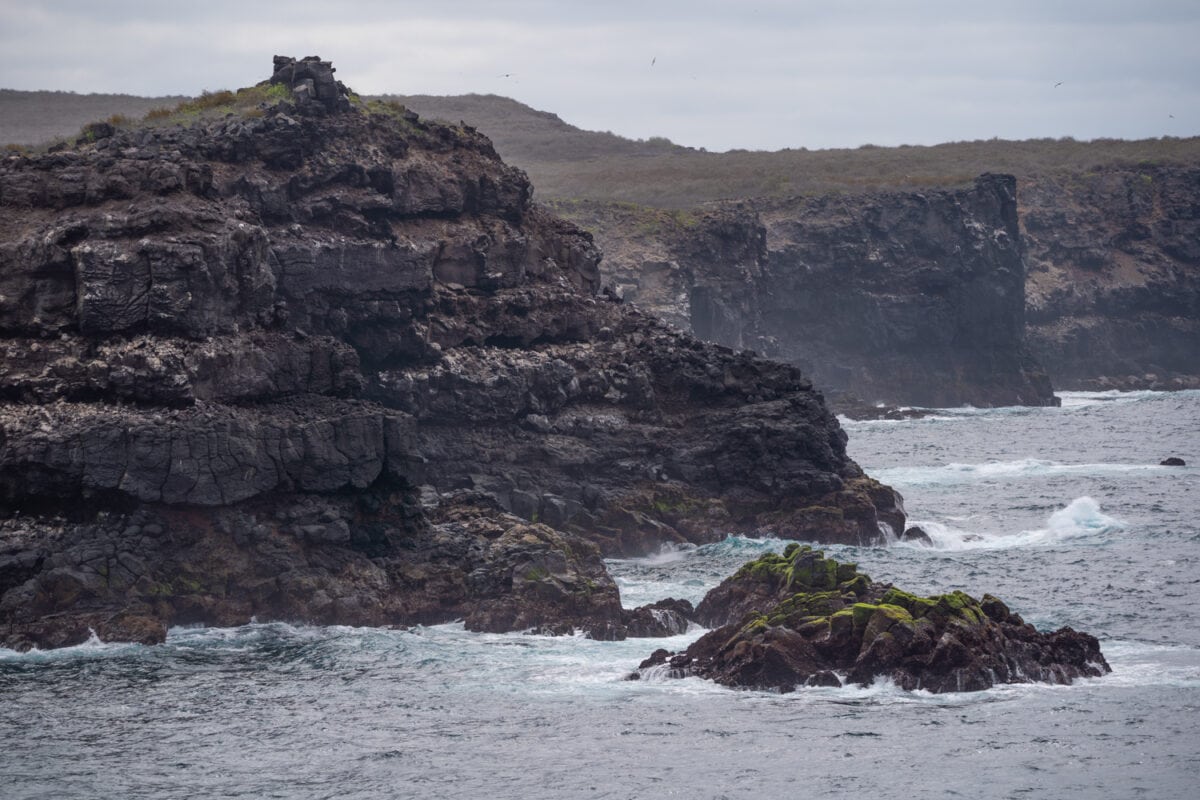
To help visitors tailor their itineraries and absorb the best balance of Galapagos wildlife, The BIG 15 was created. Built from consensus among scholars, Naturalist Guides, and island connoisseurs to choose the archipelago’s most unique and fascinating wildlife – these 15 animals are the most iconic Galapagos wildlife. To take it a step further – you can see exactly on which Galapagos Island each of these 15 animals resides. Hopefully, this helps your planning of exactly what islands you want to go to.
How to Get to the Galapagos Islands
The only way to get there is to fly. However, direct international flights do not exist; you cannot fly directly to the Galapagos. Travelers must first arrive at mainland Ecuador prior to their flight to the Galapagos Islands.
You’ll fly into Quito airport (UIO) or Guayaquil airport (GYE) for starters. You will likely stay overnight in one of those cities because most international flights get in late at night. However – this is good news as there are a couple of beautiful hotels I recommend if you stay in those cities! And both of these hotels are posh…they are both a part of the luxurious Relais Chateaux Collection. A collection of hotel properties that are five-star-quality offering a refined experience in rooms, service, and superlative cuisine.
JetBlue
I flew JetBlue which has some great deals to get to Quito (direct from Fort Lauderdale) and Quayaquil (direct from/to Fort Lauderdale or JFK)– be sure to check them out!
Where to Stay on Your Galapagos Layovers
Get a transfer into Old Town Quito and stay at historic Casa Gangotena. This hotel is such a treat to stay in – it not only offers a beautiful place to stay in heart of the historic center, but it also will lead you through the best parts of the city teaching you about Ecuador’s history, culture, and traditions. I stayed there for a few days and fell in love with the historic charm, unique things to do, and incredible cocktails!
Read Casa Gangotena reviews on Trip Advisor / Book a Room here / More hotels in Quito
If you are in Guayaquil – a short transfer from the airport is Hotel del Parque. This is pure colonial luxury surrounded by a lush park. I can’t imagine a more beautiful place to spend your transfer. I stayed there on my way home from the Galapagos Islands as I had one overnight before I could get a flight out. Not only was the historic building beautiful, the rooms large (with a bathroom about the size of a kitchen), but the restaurant and the tasting menu were exquisite – it was a perfect end to a magical Galapagos vacation for me!
Read Hotel del Parque Reviews on Trip Advisor / Book a Room Here / More hotels in Quito
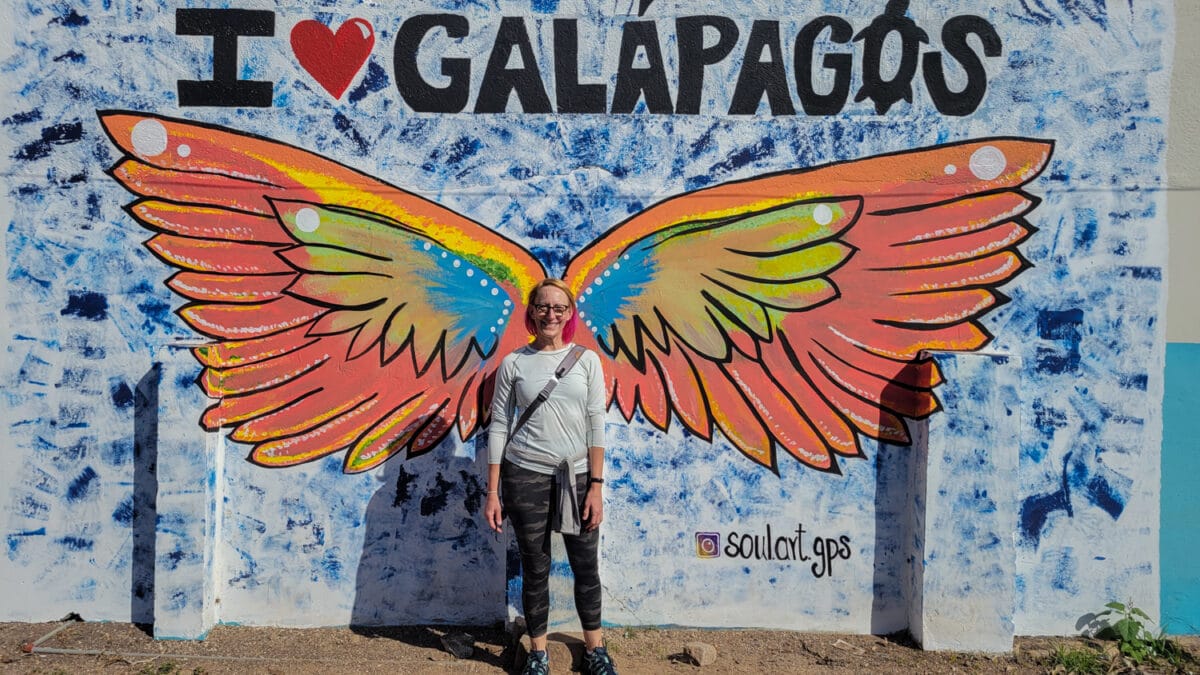
Hopefully, this helped you hone in on where you want to go in the Galapagos, as well as what type of ship you’d like to take! And it also probably refreshed your memory on turtle vs. tortoise! If you have any questions about the islands or how to choose, feel free to leave me questions in the comments and I’m happy to help based on my experiences or put you in touch with some tour providers who can answer all of your questions.
Related
[ad_2]
Source link




More Stories
Best Hotels in Boston Overview: Recommendations for Nice Hotels Near Popular Attractions
Travel Tips For Barbados – Hotels
5 Tips That Help You Pick An Awesome Ski Lodge Every Time